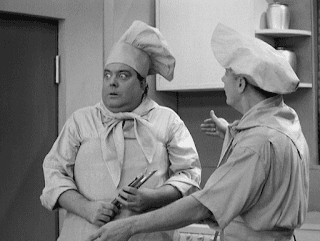Doris Roberts was an icon in the entertainment world. A character actress with razor-sharp wit, infectious warmth, and unparalleled comedic timing, she turned every role into a masterclass in storytelling. Her career spanned over six decades, gracing screens big and small as she embodied characters that felt like family, whether it was a nosy mother quick to assign guilt and blame, a stern, unyielding teacher, or a quirky in-law.
Doris had a rare gift for blending her, at times, scathing humor with a lovable heart. Her appearances in over 164 films and television shows were always memorable.
For us nostalgia fans, her work is a trip back to the days of sitcom marathons and holiday movie nights. In this article, I aim to celebrate five of the roles I most remember her for. There are many others, of course, and too many to list.
Doris May Green Roberts was born on November 4, 1925, in St. Louis, Missouri, to Ann (Meltzer) and Larry Green. As a young girl, her father Larry deserted the family, and her mother returned to the Bronx in New York City, where she was raised by her mother and maternal grandparents. Her mother remarried Chester Roberts, and Doris took her new stepfather's surname. Chester and Roberts' mother operated the Z. L. Rosenfield Agency, a stenographic service catering to playwrights and actors.
By her mid-teens, Doris was renowned for her skills as a typist and would frequently assist with the family business.
She attended and graduated from New York University, where she majored in journalism.
While attending school, she studied drama at HB Studio in Greenwich Village in New York City.
Roberts' acting career began in 1951 with an appearance on the TV series Studio One. She appeared in several episodes of The Naked City, Way Out, Ben Casey, and The Defenders. In 1961, she made her film debut in Something Wild. After Something Wild, she began appearing in many films through the 60s and 70s, often dramas and mystery films, such as A Lovely Way to Die, No Way to Treat a Lady, The Honeymoon Killers, Such Good Friends, Little Murders, A New Leaf, The Heartbreak Kid, The Taking of Pelham One Two Three, and Rabbit Test.
In 1978, she appeared as Jack Ruby's sister in a film about JFK's assassination titled Ruby and Oswald. She also appeared as the mother of Bette Midler's character in The Rose.
Hollywood legend has it that Doris Roberts was set to be in the role of Vivian on Maude. The role eventually went to Rue McClanahan, who once claimed (in 1972) that she was approached by Norman Lear during filming of an episode of All in the Family to be a last-minute replacement for Roberts.
Producers felt that Doris was too similar in comedic style and personality to Bea Arthur and didn't want Roberts to outshine the star of the show.
Doris would later guest star in 1976's All in the Family episode "Edith's Night Out" as a barfly who befriends Edith.
Roberts would appear on other iconic sitcoms, such as Alice and Barney Miller.
She would also play the unhinged Flo Flotsky on several episodes of Soap and appeared regularly on Remington Steele from 1983 to 1987. After Remington Steele ended, she bounced back and forth between film and television, appearing on iconic shows like Murder, She Wrote, Full House, and Step by Step.
She achieved the height of her fame for her work on Everybody Loves Raymond as Marie Barone from 1996 to 2005, where she was chosen out of a reported 100 actresses considered for the part. She won four of her seven Emmy nominations for her work as Marie. She had previously won an Emmy for a guest appearance on St. Elsewhere, playing a homeless woman. She was also once nominated for her role on Remington Steele, for appearances on Perfect Strangers, and a PBS special called The Sunset Gang. Doris appeared in all 210 episodes of Everybody Loves Raymond.
In 2003, she received a star on the Hollywood Walk of Fame.
Between 2006 and 2010, she made several appearances on film and television, including Law and Order: Criminal Intent, Aliens in the Attic, The Middle, and Lizzie McGuire.
Doris Roberts kept busy on the stage when she wasn't working in film and television. Her stage career began in the 1950s on Broadway. Appearing in numerous shows, including The Time of Your Life, The Desk Set, Neil Simon's The Last of the Red Hot Lovers, and Bad Habits, she was acting on Broadway as late as June 2009, starring in Unusual Acts of Devotion.
Doris was also known for her advocacy work, specifically with animal and elder rights. She testified before a U.S. Congressional panel on September 4, 2002, that age discrimination was prevalent in Hollywood. She was so convinced older actors, especially women, would be looked down upon by the studios that she often said in interviews (and even membership applications!) she was born in 1930, despite being born in 1925.
She would frequently donate time and money to the group Puppies Behind Bars, which worked with inmates training guide dogs for the physically disabled and the elderly, as well as bomb detection police dogs.
Doris was married in 1956 to Michael Cannata; they divorced in 1962. They had only one son, who would become her manager during her later years. She remarried in 1963 to writer William Goyen, and they remained married until his death in 1983.
Doris passed away in her sleep on April 17, 2016, at home in Los Angeles, in the days following a stroke at the age of 90.
After her death, her co-star on Raymond, Ray Romano, mentioned just how good she was. "She played the most intrusive, overbearing, nosy woman—always starting fights and whatnot and meddling in our business—and yet when I asked the fans who their favorite character was, all the time it was her. She was so good at portraying the love that was underneath."
Here are my 5 favorite roles of Doris Roberts:
1. Marie Barone, Everybody Loves Raymond (1996–2005)
Starting off with this one feels like I'm cheating, because when you think of Doris Roberts, Marie Barone from Everybody Loves Raymond likely springs to mind first. For good reason, too. She was the overbearing, guilt-giving, yet hysterically funny matriarch of the Barone family. The stereotypical Long Island Italian mother, who ruled her house with a wooden spoon and a well-timed guilt trip, was equally infuriating and endearing. Marie's relentless hovering over her son Ray (Ray Romano) and near disinterest in her older son Robert (Brad Garrett) fueled some of the show's most memorable moments.
Appearing in all 210 episodes across nine seasons, Roberts transformed Marie from a stereotype into a force of nature. Off-screen, Doris would bring warmth to the series, often baking cookies for the cast and crew. She initially hesitated to take the role, worried about being typecast as a grandmother or the villain, but her son convinced her, telling her, “Mom, this is a gold mine!”
The gamble paid off: she won four Emmy Awards for Outstanding Supporting Actress in a Comedy Series (2001, 2002, 2003, 2005), tying her with comedy legends like Cloris Leachman for the most wins in the category. Her most famous line, the iconic "I don't like that, Raymond," was completely improvised by Roberts during a moment of frustration during rehearsal. It instantly became a fan favorite.
For viewers like myself, Marie Barone is the nostalgic backbone of the show, evoking family memories and times of love and chaos. Doris' performance remains the sitcom gold standard, proving that even the most overbearing of mothers can steal your heart.
2. Claire Tanner, Full House (1989)
For fans of Full House, Doris Roberts’ guest appearance as Claire Tanner in the season three episode “Granny Tanny” (1989) is a nostalgic gem from the golden age of TGIF. Her single appearance on the series comes as Danny Tanner's mother, Claire.
The role was originally played by Alice Hirson for three episodes of Season One. When the time came to reuse the character during Season Three, Doris Roberts was recast in the role for the episode "Granny Tanny." In "Granny Tanny," Claire returned to the Tanner household after recently retiring and becoming sad and lonely. The whole family decided to make it seem like they needed her so that she'd feel happy, but it worked a little too well, and she decided that she was going to move in and force Jesse and Joey to move out. Eventually, Danny told her she wasn't needed in the house, but she was needed in the neighborhood. It was assumed she moved from Tacoma to San Francisco, but her character was never seen again.
The episode centers on Claire’s reluctance to leave after an extended stay, leading to a heartfelt (and hilarious) lesson about independence and family bonds.
Roberts infused Claire with a Marie Barone-esque mixture of doting warmth and subtle mischief, making her the kind of granny who would knit you a sweater and rearrange your furniture without asking. She had wonderful chemistry with Bob Saget, and behind the scenes, she bonded well with the young cast, particularly Candace Cameron Bure (DJ), who would later call her "a hoot" and someone who kept everyone laughing between takes. The oversized glasses and floral blouse were Roberts' idea, adding an authentic touch to the character in a nod to her own mother's style. It would almost become her uniform in the roles and years to come.
Doris almost missed out on the role due to a scheduling conflict with a Broadway play, but the Full House team rearranged shooting to accommodate her. What a testament to how much they liked and wanted her on this one episode as Danny's mother.
For us 90s kids who grew up with Full House reruns, Claire Tanner was an, albeit brief, snapshot of the show's wholesomeness, where every episode ended in a hug and a life lesson. Doris Roberts' one-time appearance once again reminds us why she was a go-to for roles that felt like home.
3. Mrs. Rinsky, The Middle (2010–2011)
Providing a masterclass in comedic style, Doris Roberts appears as Mrs. Rinsky, Brick Heck's intimidating third-grade teacher. She appeared in three Season Two episodes: “The Quarry,” “The Math Class,” and “Back to Summer." The sitcom, which chronicles the misadventures of the Heck family in small-town Indiana, was a natural fit for Roberts, who excelled at playing characters with a sharp edge. Mrs. Rinsky was a force to be reckoned with—stern, sarcastic, and a master of classroom one-liners, especially when dealing with Brick's mother, Frankie, portrayed by her former Everybody Loves Raymond onscreen adversary, Patricia Heaton.
Mrs. Rinsky's unforgettable deadpan delivery and withering glances turned lines like "I've been teaching since the Nixon administration" into instant classics. Her reunion with Patricia Heaton was a treat for fans, as their on-screen clashes were full of familiarity. Off-screen, Roberts proved a mentor to the younger cast, mostly Eden Sher (Sue Heck), who later called Roberts a "comedic genius with the kindest soul."
Roberts would ad-lib several of Mrs. Rinsky's snarkier lines, drawing on her own experiences with tough teachers from her Bronx childhood. The name Rinsky was a playful nod to a real-life teacher of one of the show's writers, and Roberts leaned into the role by studying older educators' mannerisms, specifically the pencil-tapping habit.
Doris Roberts provided a bright ray of sunlight in the show's early years. Roberts' knack for turning guest spots into scene-stealing moments provided a bright ray of light in the show's early years. Mrs. Rinsky was the teacher we all knew from our childhood—the one we simultaneously feared and somehow adored.
4. Frances Smith, National Lampoon’s Christmas Vacation (1989)
There's hardly a more popular Christmas film these days than National Lampoon's Christmas Vacation, and Doris Roberts shines as Frances Smith in a quiet but hilarious standout role. As Ellen Griswold’s mother and Clark’s mother-in-law (Beverly D’Angelo and Chevy Chase), Frances arrives at the Griswold’s overstuffed Christmas celebration with a skeptical smirk and a dry sense of humor (and perhaps a dry martini or two!). Paired with E.G. Marshall as her husband, Art, she is always there, lurking in the background with a disapproving scowl and the occasional lit cigarette. She views Clark's unhinged Christmas—dry turkeys, runaway squirrels, and excessive light displays—with an air of bemused disinterest. Roberts' reactions steal laughs amid Chevy Chase's slapstick.
Playing Frances with a sort of understated brilliance, Roberts let her raised eyebrows and cutting remarks do the heavy lifting. Her performance made her the relatable relative who'd rather be sipping on a stiff drink than helping untangle a ball of Christmas lights. Behind the scenes, Roberts claimed she prepared for the role by channeling her own mother-in-law's knack for subtle judgment, right down to Frances' pursed-lip stare and martini burps.
Frances' wardrobe, mostly stylish sweaters and pearls, was chosen by Doris to contrast the Griswolds' tacky holiday decor, a noticeable difference each time I watch. Her choice also highlighted that Ellen came from a different "side of the tracks" than Clark and his family, leading to the overall disappointment of Ellen's parents in her choice of husband.
5. Rose Finkler, Play the Game (2009)
You may have never heard of this indie comedy, but Doris Roberts takes center stage as Rose Finkler, a widowed grandmother caught in a love triangle between Andy Griffith's Joe and Liz Sheridan's (best known as Helen Seinfeld, Jerry's TV mom) free-spirited Edna. In the movie, Joe (Paul Campbell) helps his lonely grandfather improve his "game" and find love.
The movie is definitely a trip, and for those of us who only know Andy as Sheriff Taylor and Matlock, watching him discuss his Viagra usage is... interesting.
Joe sets his sights on Rose, only to discover that Rose is a vibrant senior with plenty of life left to live. Roberts brings a sense of gentleness to Rose, without the humorous skepticism and sarcasm that Doris Roberts typically brings. This departure from the norm, or at least what we've grown accustomed to from Roberts, showcases her ability to convey depth and warmth.
As Grandpa Joe tries to woo her, Rose balances humor and her sense of rediscovery, making her a character that defies stereotypes about old age. While Joe eventually moves on to spending more time with the more "ready and willing" Edna, the scenes between Griffith and Roberts are the heart of the film, a chemistry that captures the awkwardness and tenderness of finding companionship, regardless of age.













.png)




Comments